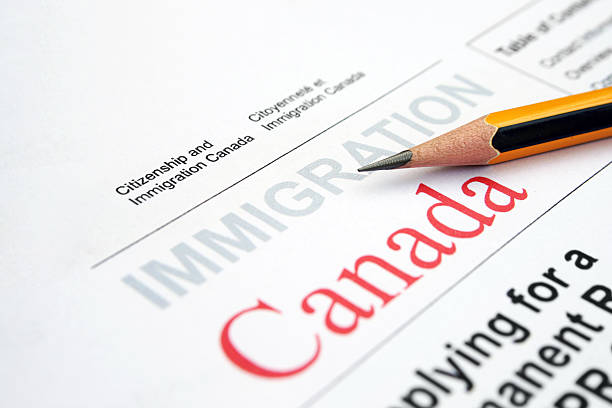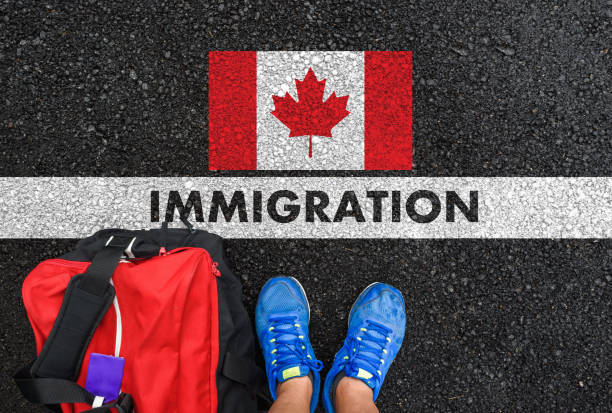Canada is a popular destination for individuals looking to relocate. The land of Maple Leaf is making big changes to its immigration system in 2024, which you need to know about!
These changes reflect Canada’s commitment to welcoming newcomers, which is vital in driving economic growth.
Starting in June 2024, these changes are a big deal for Canada’s immigration system. They aim to accommodate Canada’s needs better and improve conditions for workers, international students, employers, and those wanting to live in the country permanently.
This guide will explain the eight changes and how they might affect employers, international students, people wanting to move to Canada, and the immigration rules.
1. Visitors are no Longer Allowed to Apply for Work Permits from Within Canada
Temporary visitors in Canada will no longer be able to apply from within the country for a work permit as of August 28, 2024!
The program’s goal, implemented in August 2020, was to help Canadian tourists who could not leave the country due to COVID-19-related border closures. They might apply for a work visa under the proposal without having to leave the country.
While awaiting a decision on their new work permit application, anyone who had possessed a work permit within the previous 12 months but had altered their immigration status to tourist became eligible to work lawfully in Canada.
The policy was initially supposed to expire on February 28, 2025. However, as part of broader initiatives to re-balance the number of temporary residents in Canada and protect the integrity of the immigration system, Immigration, Refugees, and Citizenship Canada (IRCC) is discontinuing it immediately!
According to the Department, applications filed by the rules before August 28 will still be processed.
2. Changes to Post Graduate Work Permit (PGWP) Eligibility
After completing an approved study program in Canada, international students may be granted an open work permit known as a Post-Graduate Work Permit.
Before recently, most international students were qualified for Post-Graduation Work Permits if they had finished a study program in Canada that lasted more than eight months.
However, as of September 1, 2024, international students enrolled in study programs provided by PPP institutions as part of curriculum licensing agreements will no longer be eligible for PGWPs upon graduation.
3. Suspension of Study Permit Processing for Certain Institutions
Canada’s government resolved in July 2024 to cease processing study permits for educational institutions that do not keep proper track of the enrollment of international students, a significant step towards curbing the exploitation of these permits.
Immigration Minister Mark Miller declared that educational institutions must notify the federal immigration agency about student attendance and compliance with study permit criteria.
This implies that every time a student transfers schools, they have to reapply for a study permit, and they have to do it before they can begin their new course of study.
Furthermore, per IRCC regulations, DLIs must now confirm all acceptance letters within ten days of receiving an application from an international student. Canada has also capped the number of international students it will accept for the next two years.

4. End of Post-Graduation Work Permits at the Border
As of June 2024, foreign nationals can no longer apply for post-graduation work permits at Canadian borders.
This modification was made to lessen the “flagpole” practice, in which temporary residents enter and exit Canada in less than a day to avoid the regular waiting periods for work or study permits.
The online application method ensures a more equitable and well-organized procedure.
5. Increased Work Hours for International Students
Starting in September 2024, international students in Canada are allowed to work off-campus for up to 24 hours per week, an increase from the previous limit of 20 hours.
This change was introduced to address labor shortages, provide more support for international students, and ensure continued focus on their studies.
6. Changes to the Start-up Visa and Self-Employed PR Programs
With exceptional applications received in recent years, the Start-up Visa Program has also experienced substantial modifications this year.
Each designated organization can now support ten start-ups and corresponding permanent residence (PR) applications.
Because processing times have increased to more than four years, admissions under the Self-Employed Persons Program have been suspended until January 2027.
While considering options for program reform, the IRCC will continue to handle applications already filed via this channel.
However, business incubators and startups backed by Canadian investors and part of Canada’s Tech Network will now get priority processing for their applications.
7. PR on Arrival for Caregivers
In June 2024, the IRCC revealed a new PR on-arrival pilot program for caregivers. These initiatives have replaced the Home Support Worker and Home Child Care Provider programs.
Instead of obtaining a year of Canadian work experience as was previously necessary, caregivers who have been granted a Canadian work permit may now be able to obtain permanent residence (PR) upon arrival.
Occupational regulations have also been loosened, allowing caregivers to work for companies that offer temporary and part-time care to people recovering from illnesses or injuries.
In addition to meeting Canada’s growing need for caregivers, the initiative aims to provide carers with clear routes to employment and permanent residency. Depending on enrollment, the IRCC has indicated that these pilot programs might become permanent.
8. Parents and Grandparents Intake
The IRCC expects to invite 35,700 applicants from the parent and grandparent PR pool in 2024 to sponsor their parents or grandparents for permanent residence in Canada.
These sponsors will be chosen randomly from among the candidates who filled out an Interest to Sponsor form in 2020. If invited, sponsors will receive a date by which the IRCC needs to accept their sponsorship applications.
On May 21, 2024, the IRCC started sending sponsorship invitations under this initiative.
Conclusion
Global events, new policies, and economic changes all contribute to the ongoing changes in Canadian immigration. Therefore, anyone wishing to travel, work, or study in Canada must know the most recent changes to the country’s immigration and visa policies.
Keeping up with these updates guarantees compliance with new requirements and improves your application process readiness. Visit the IRCC web page to learn more about your immigration options and to stay updated on these developments.
